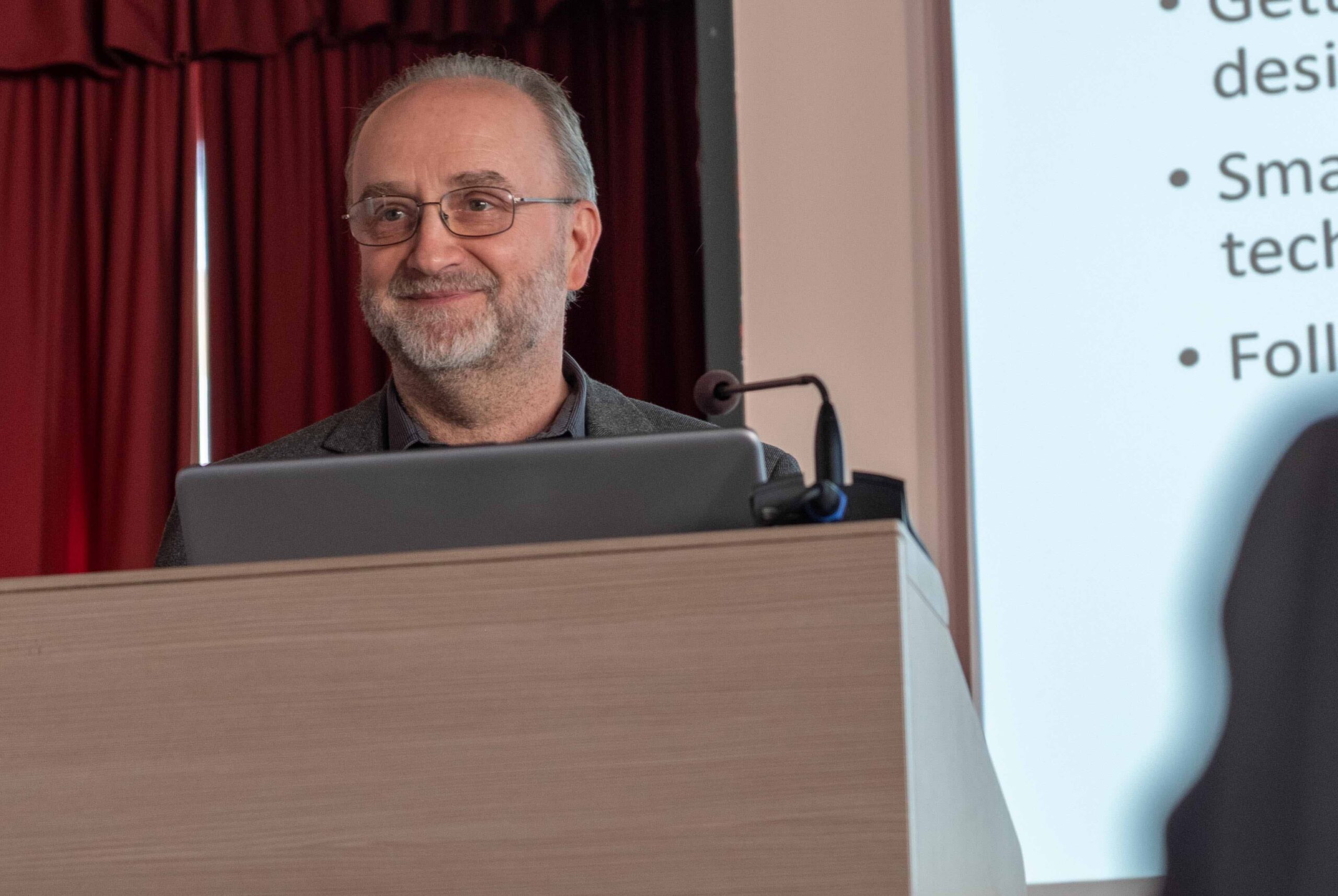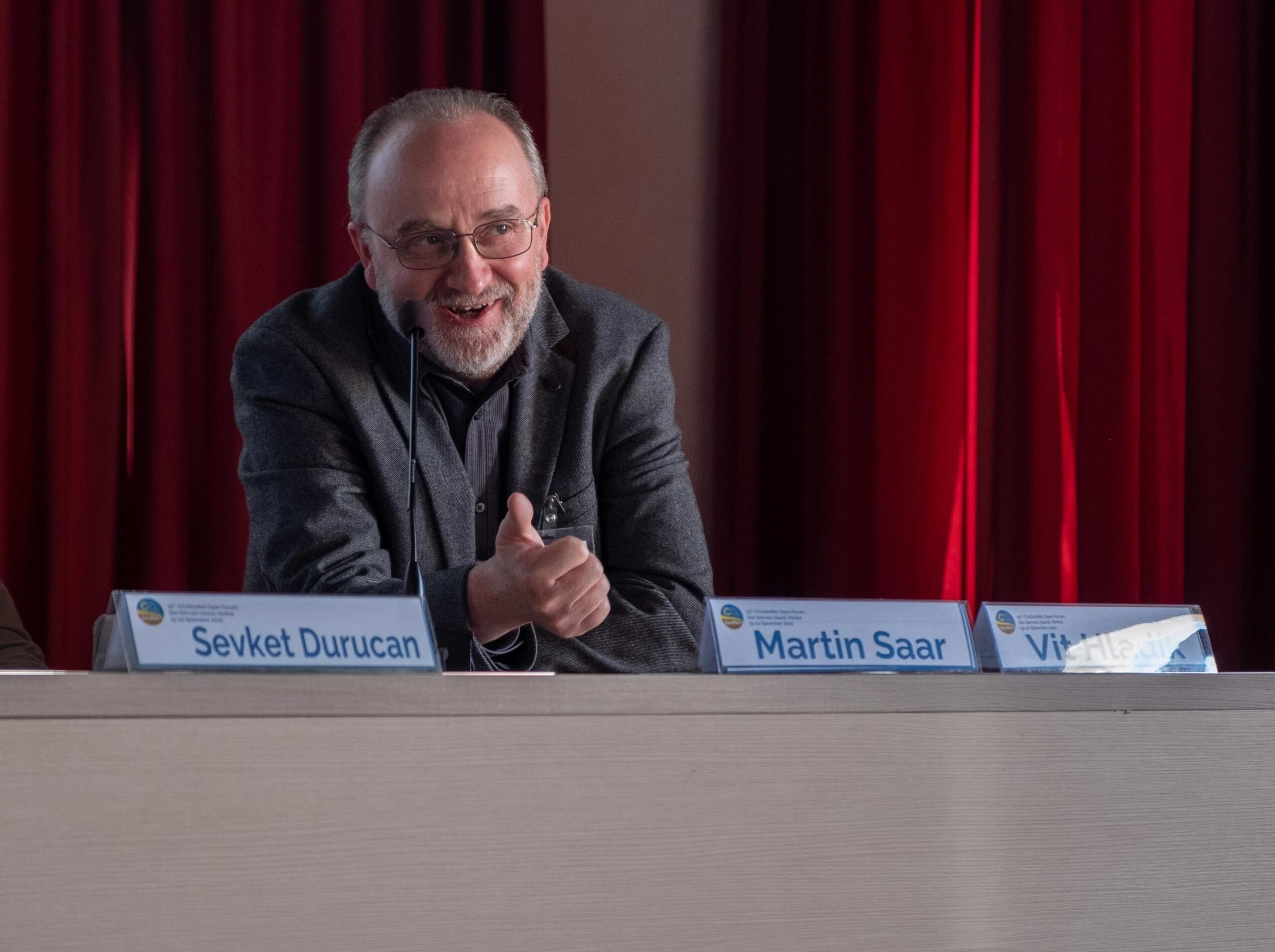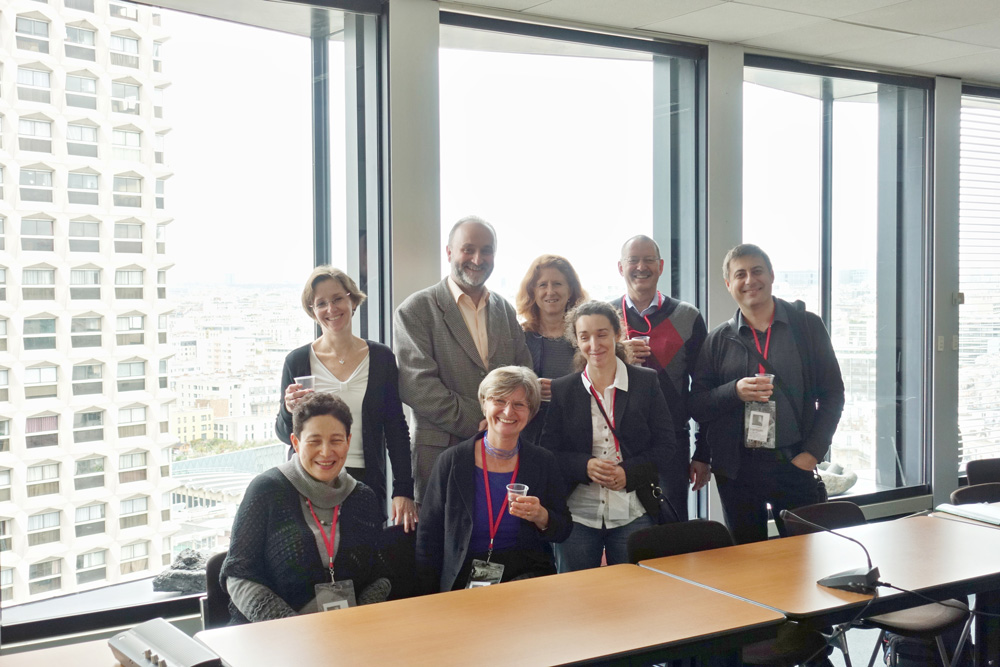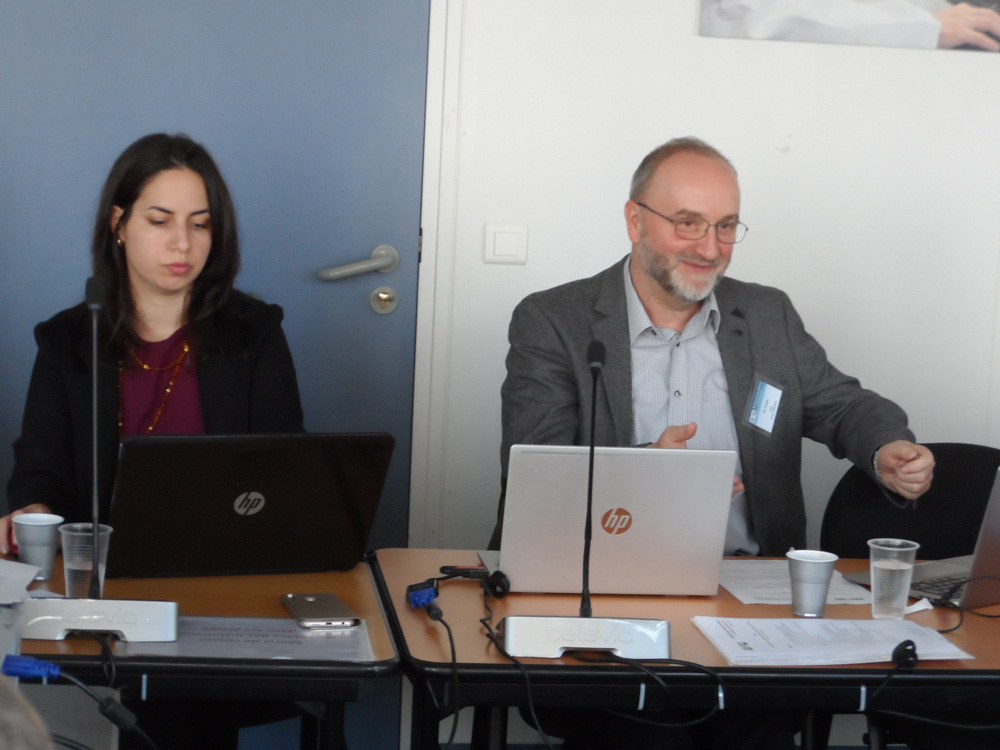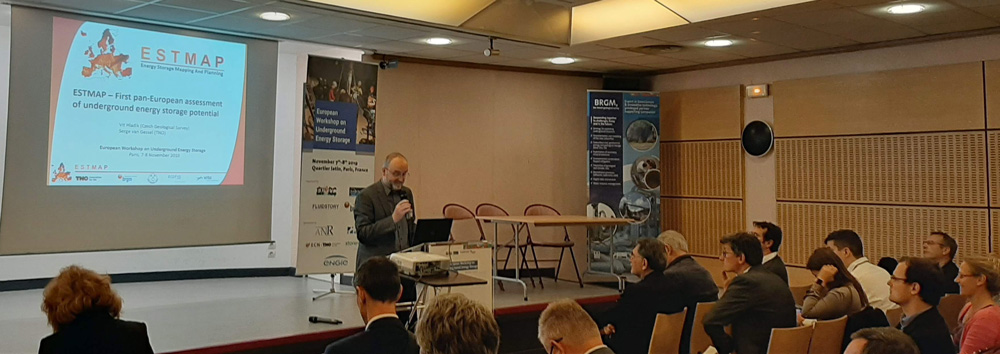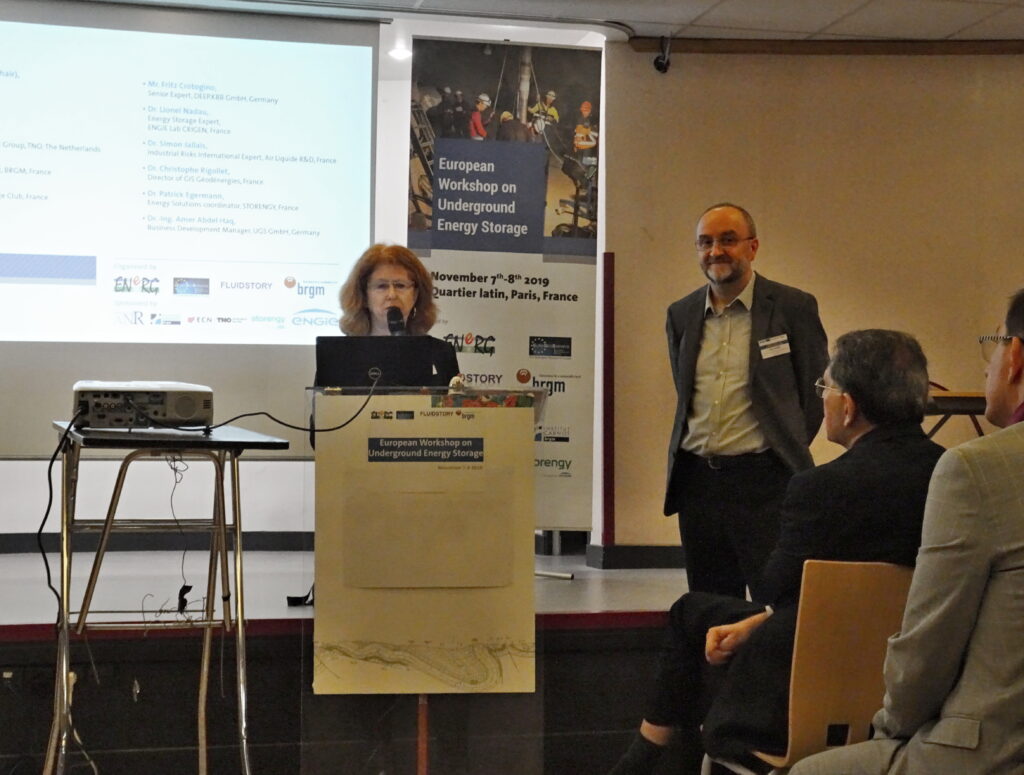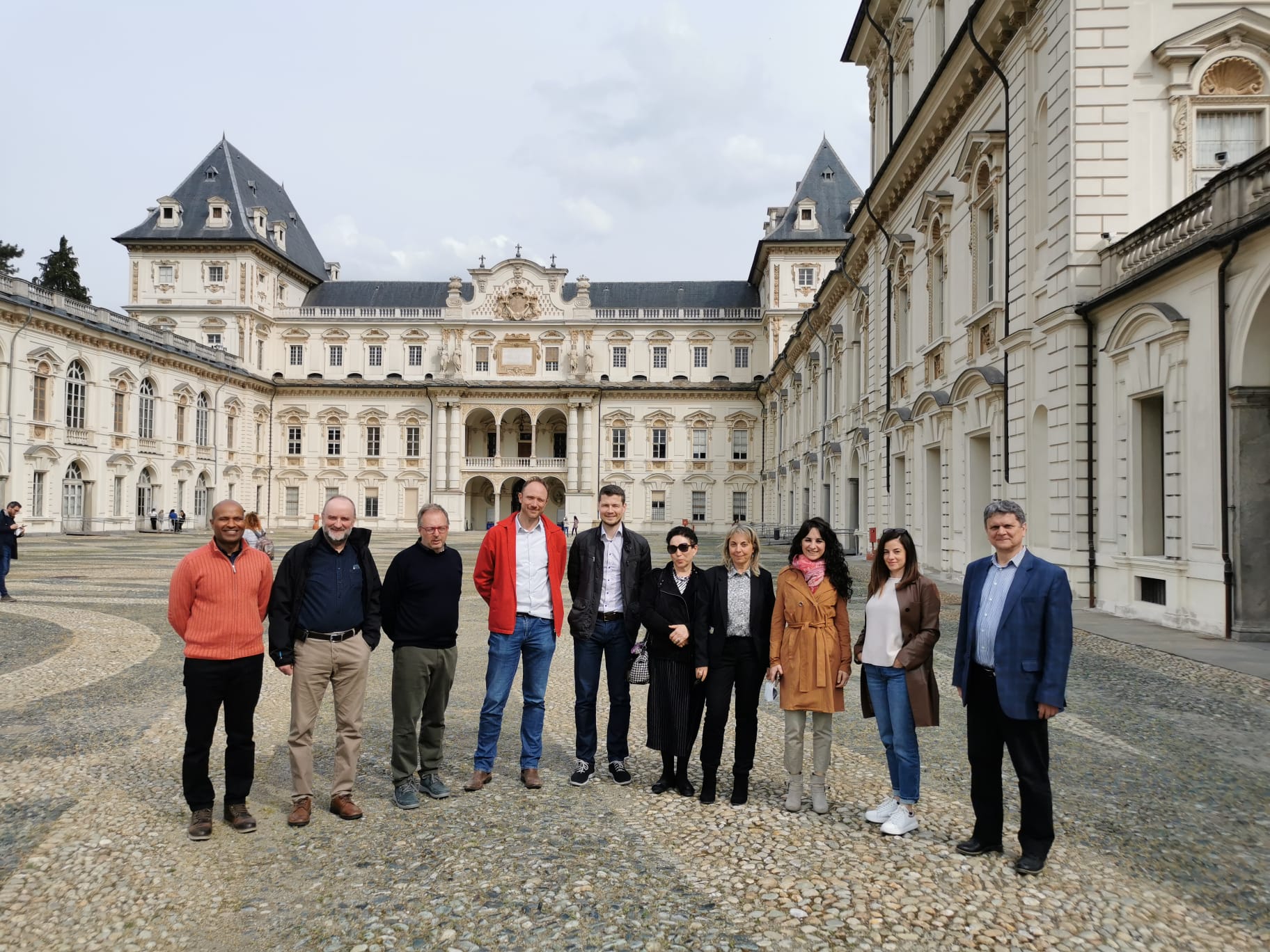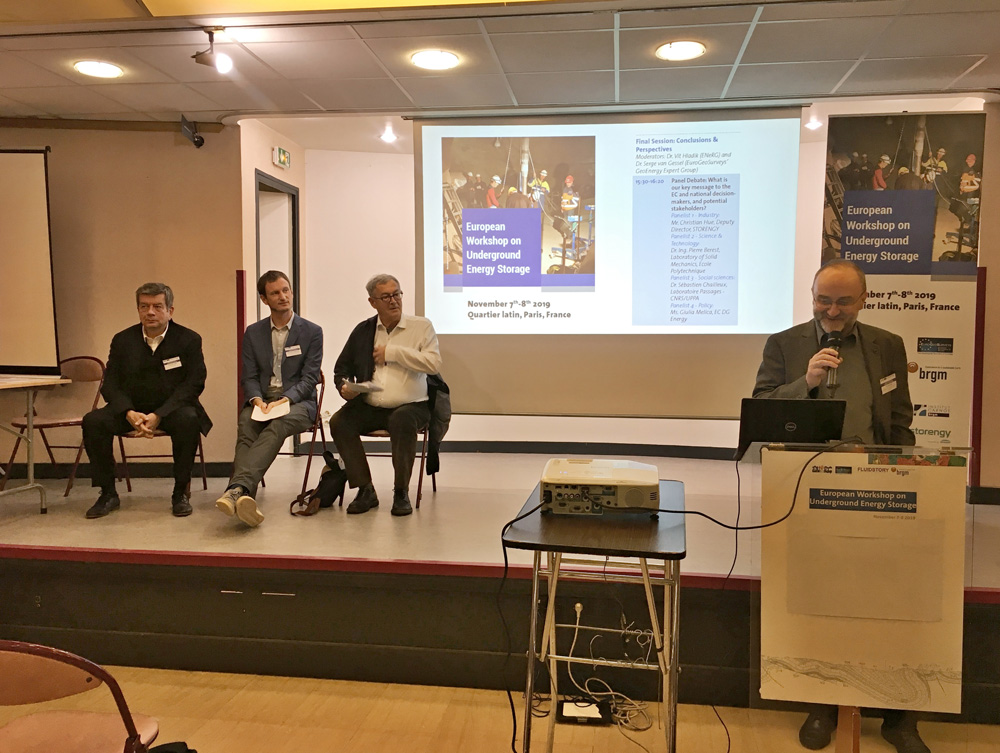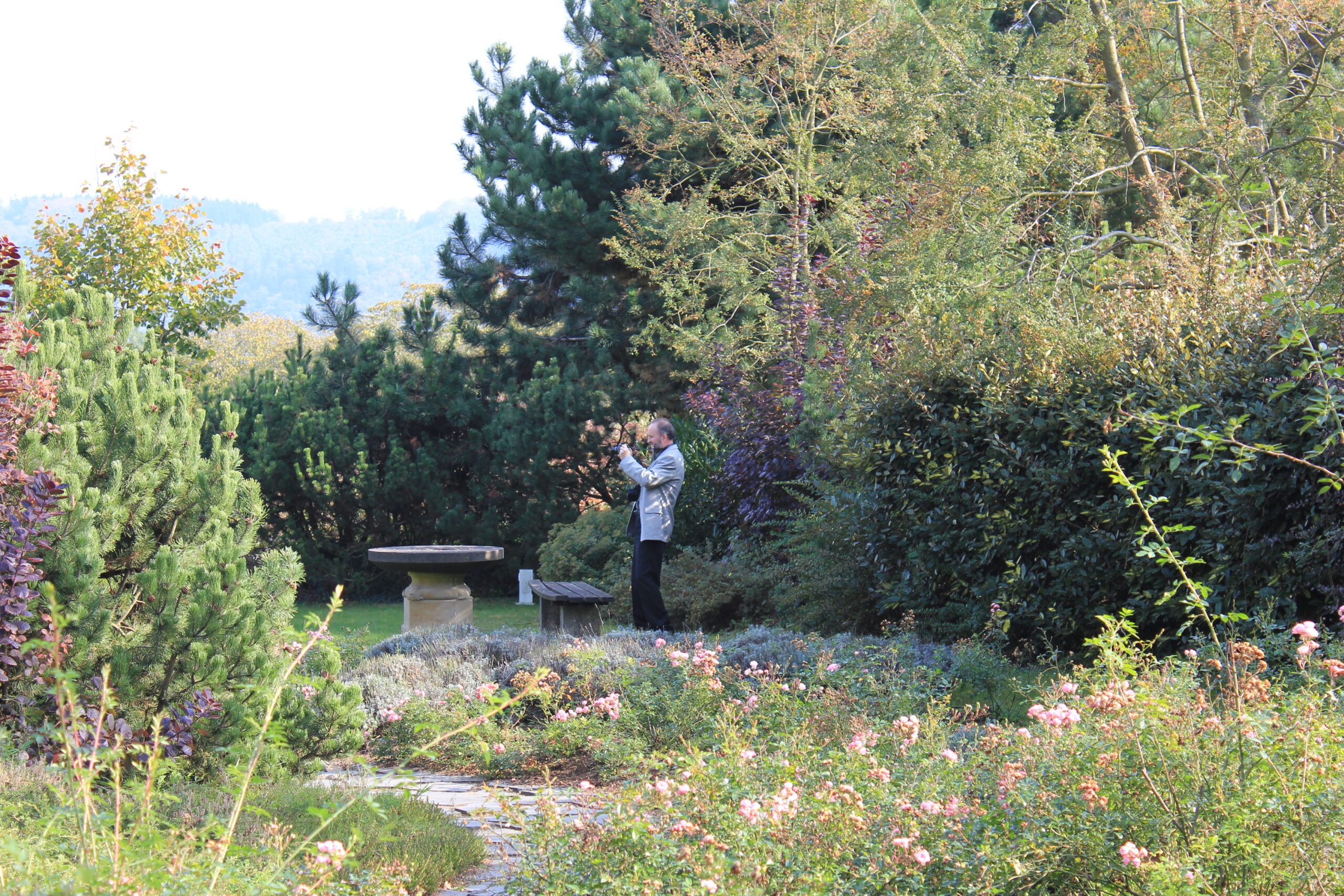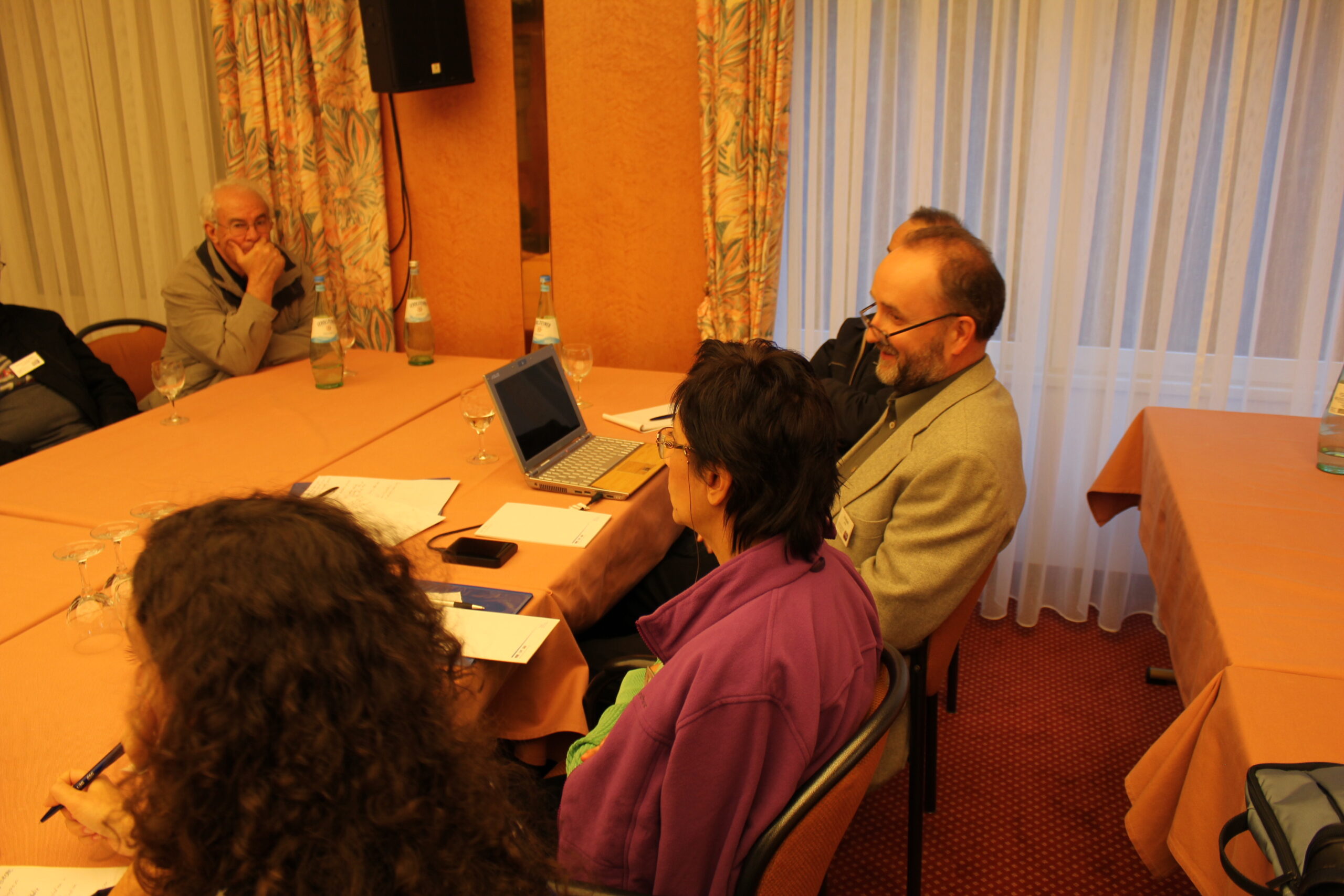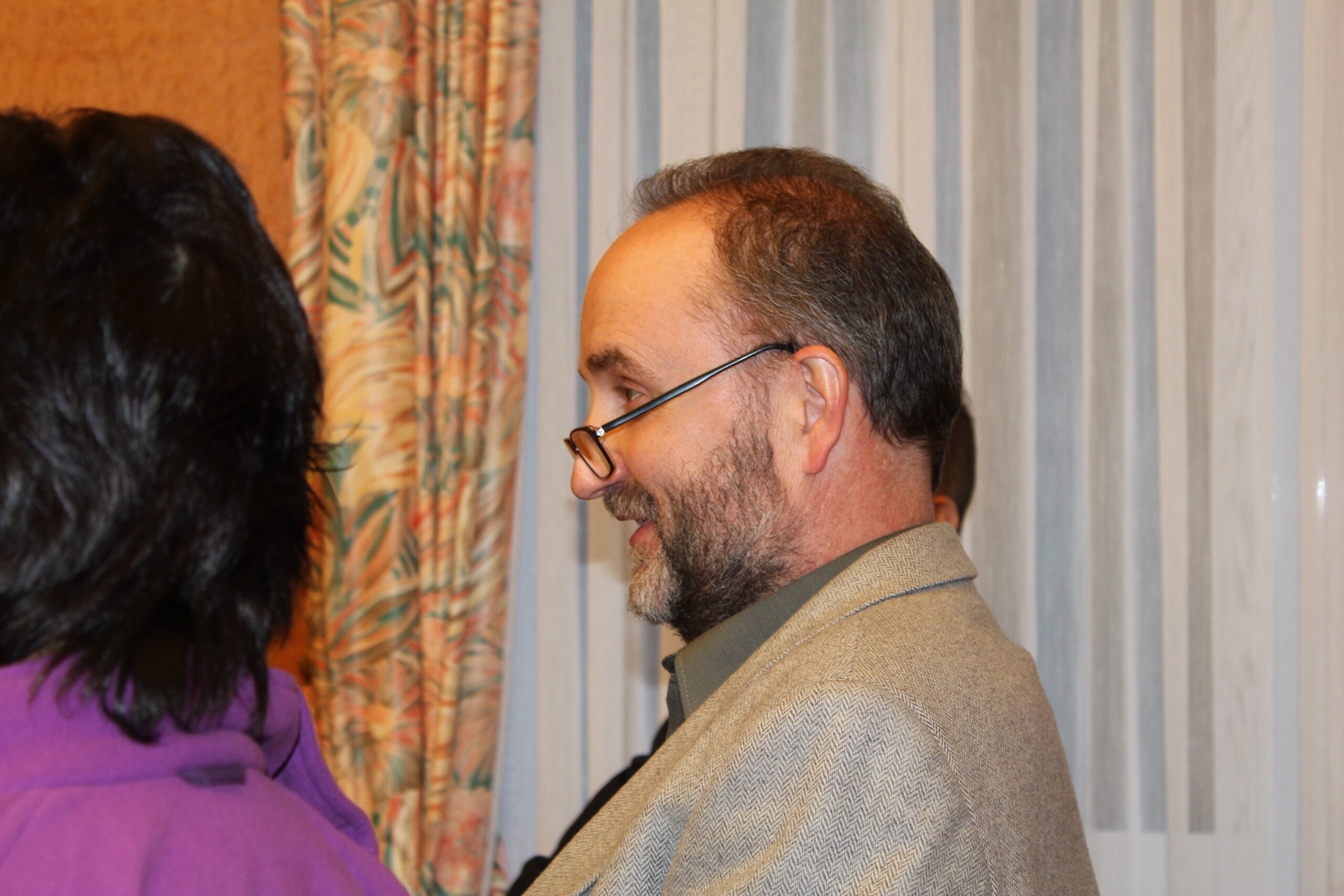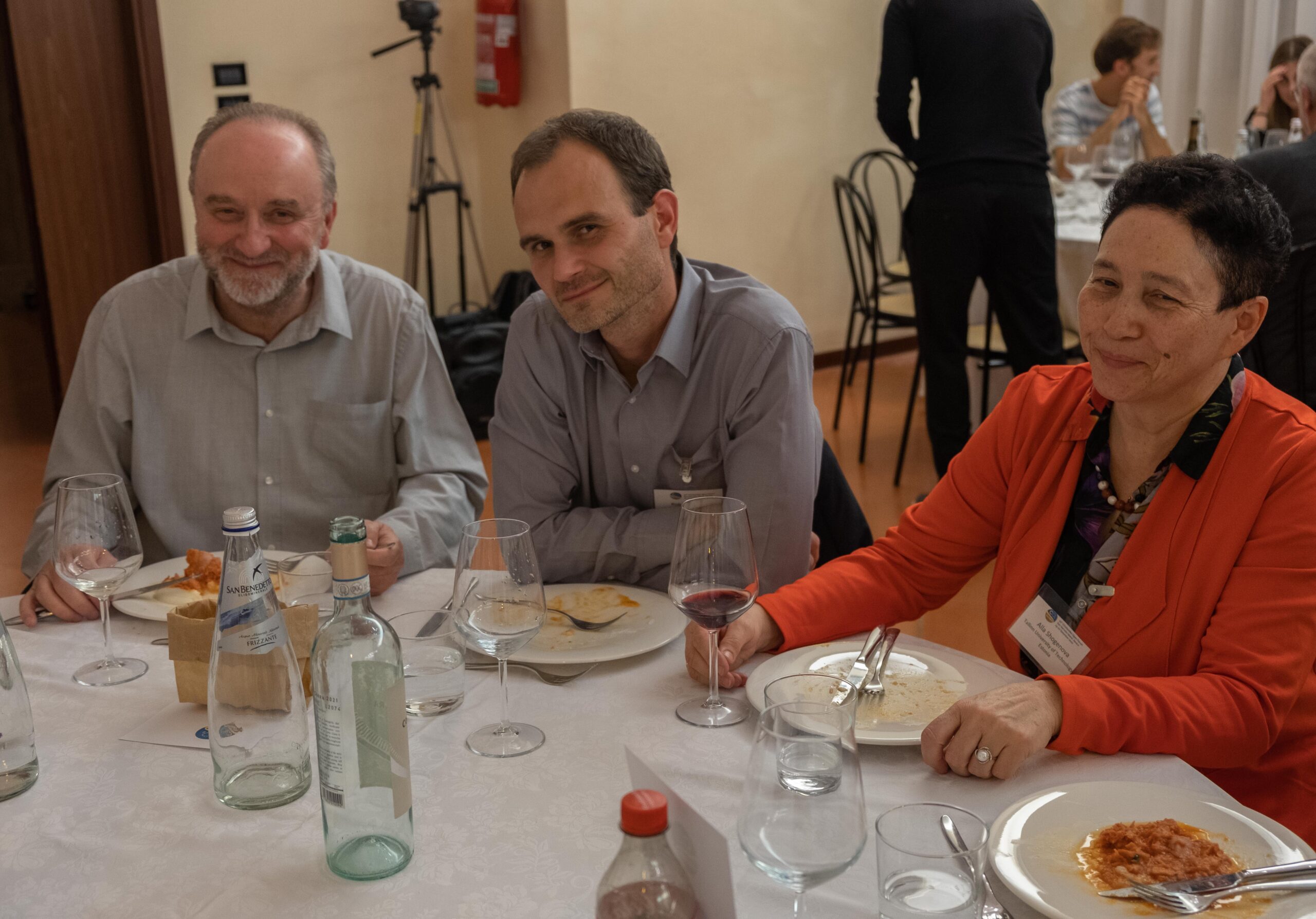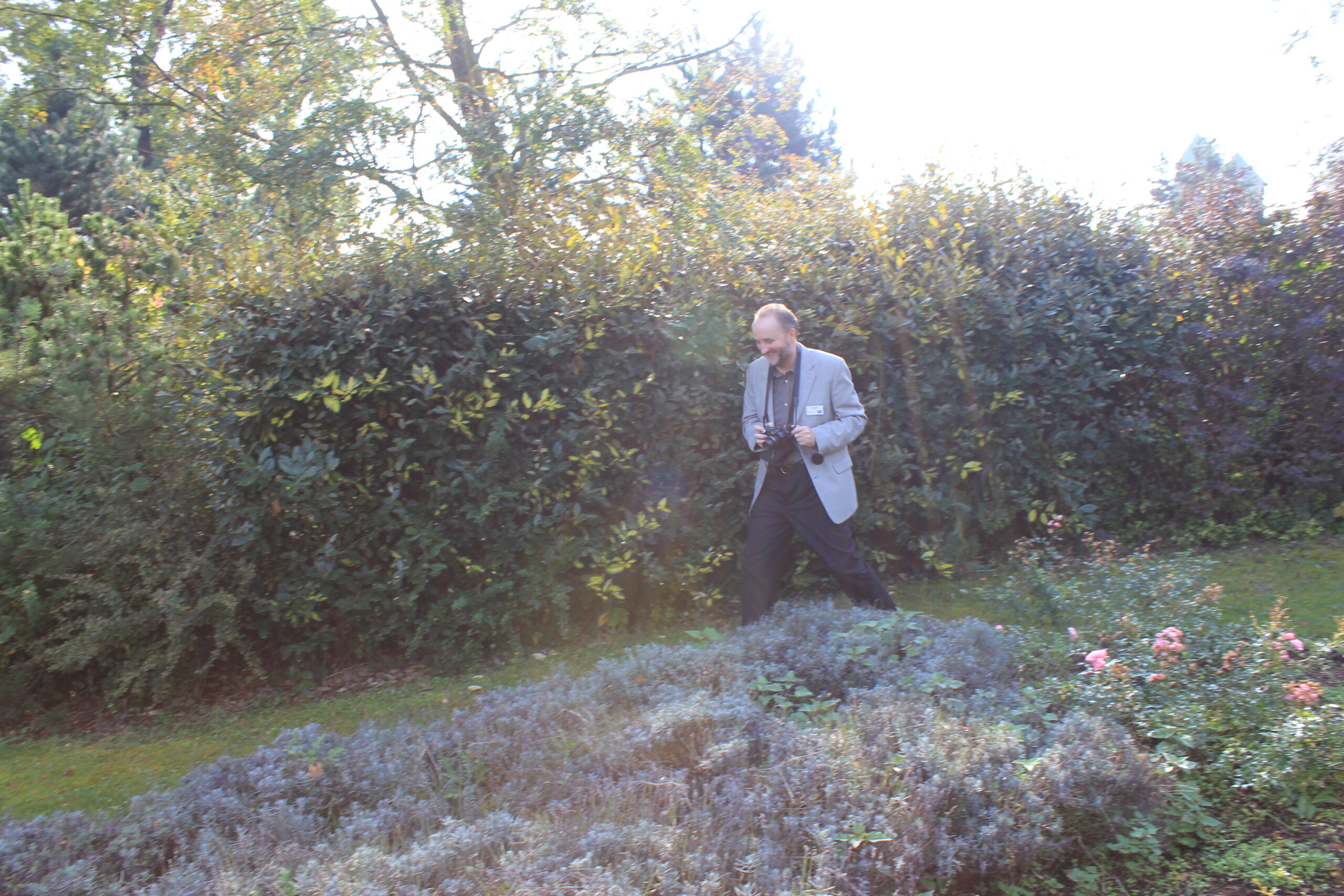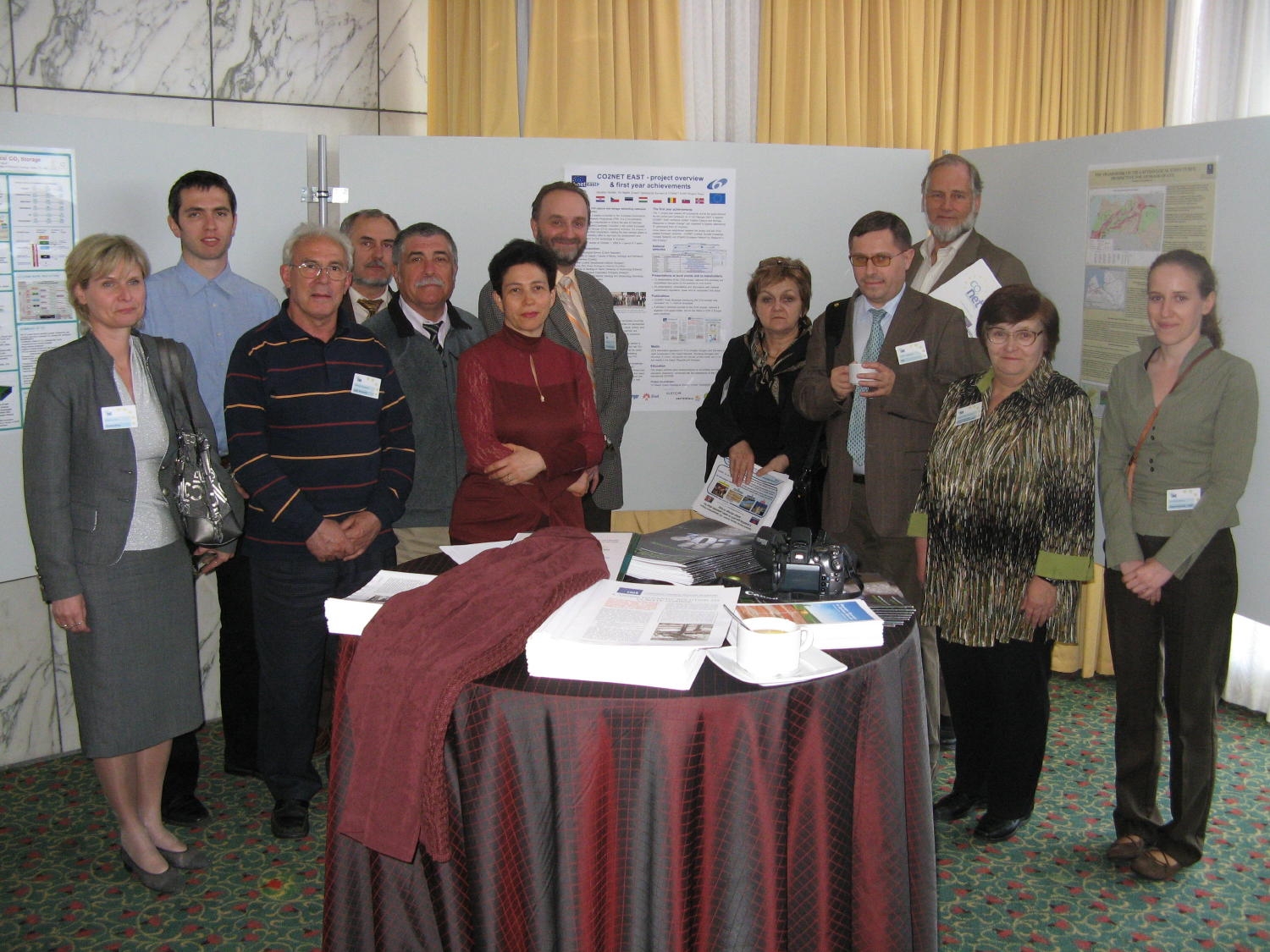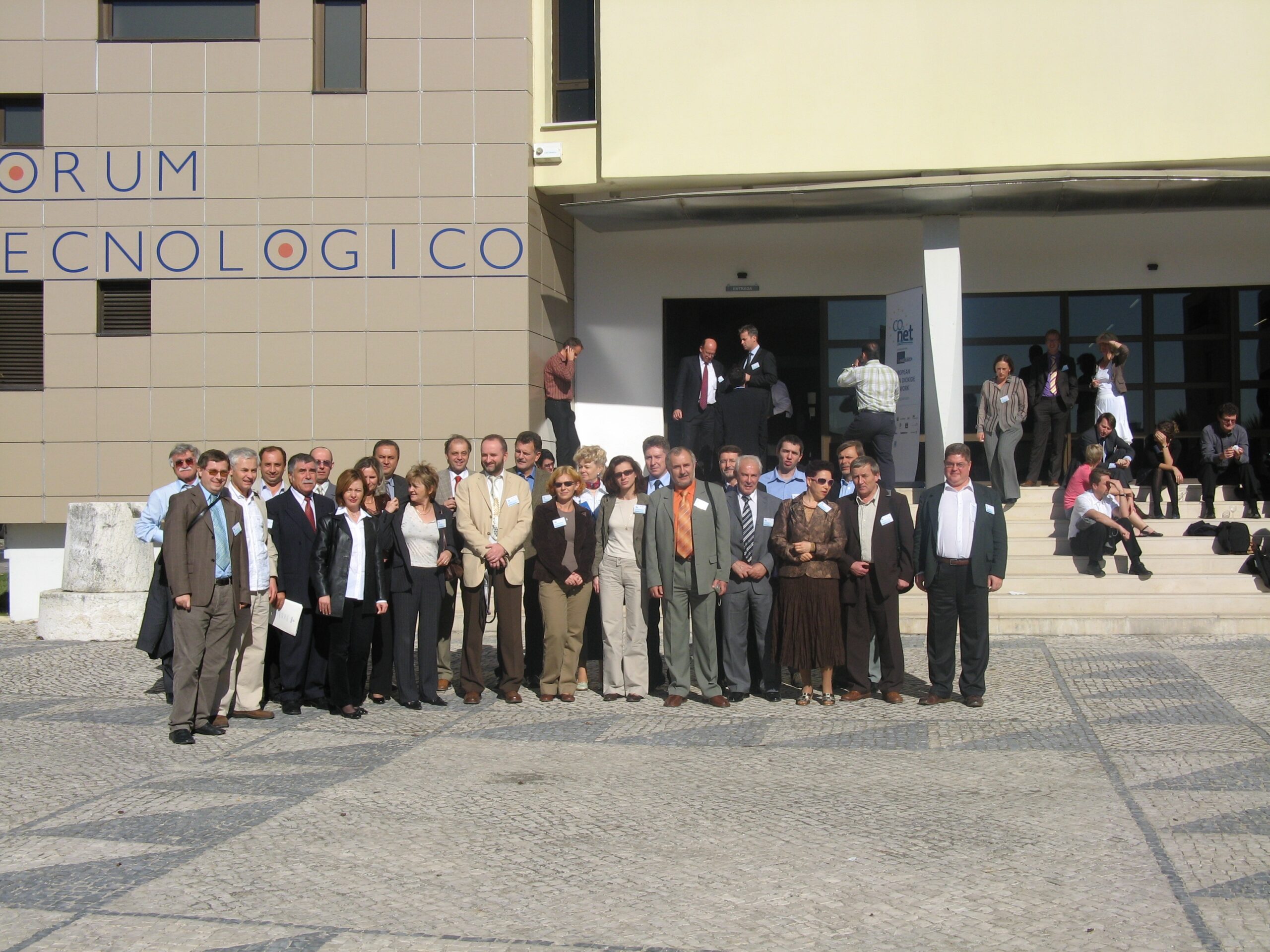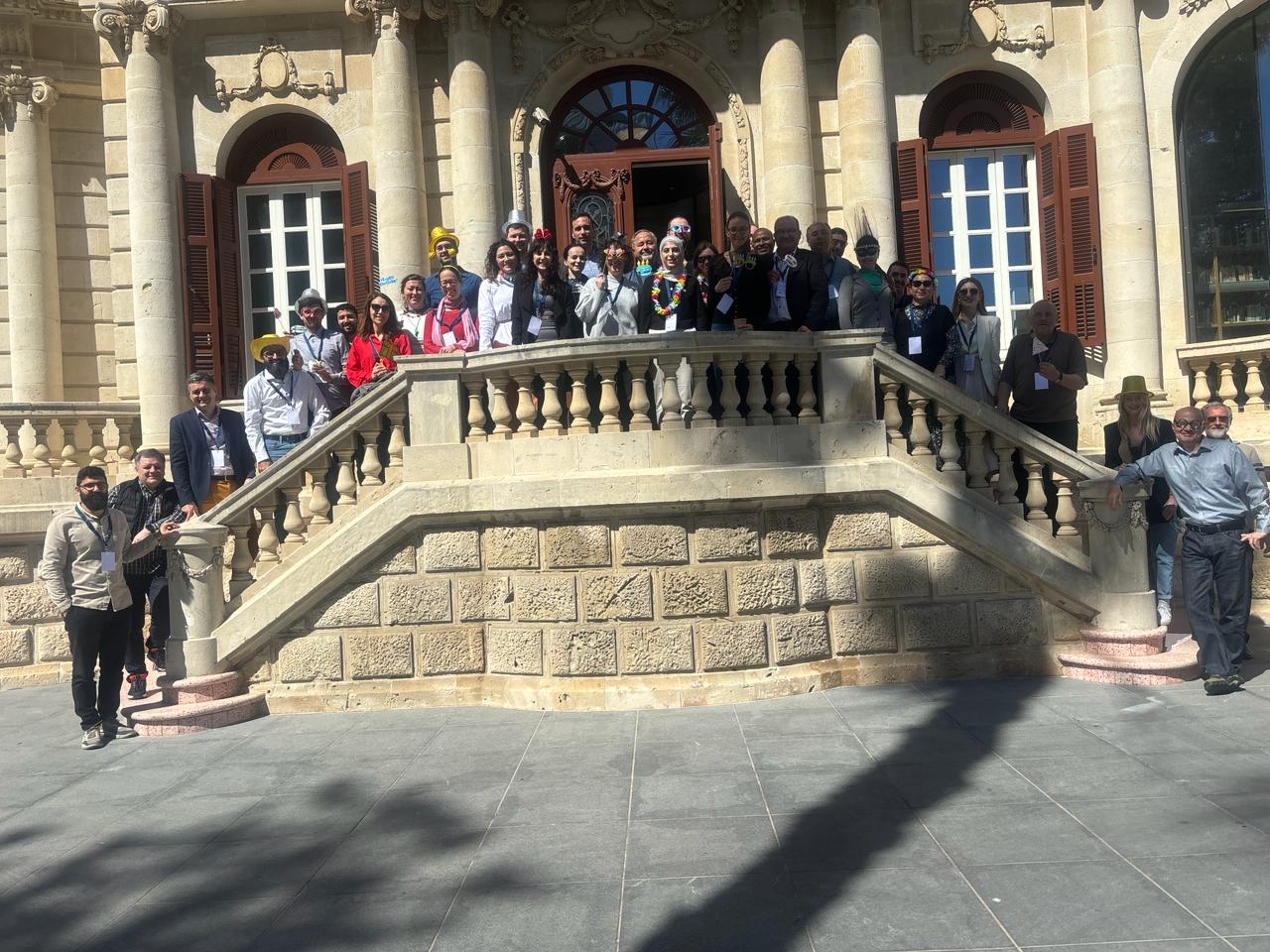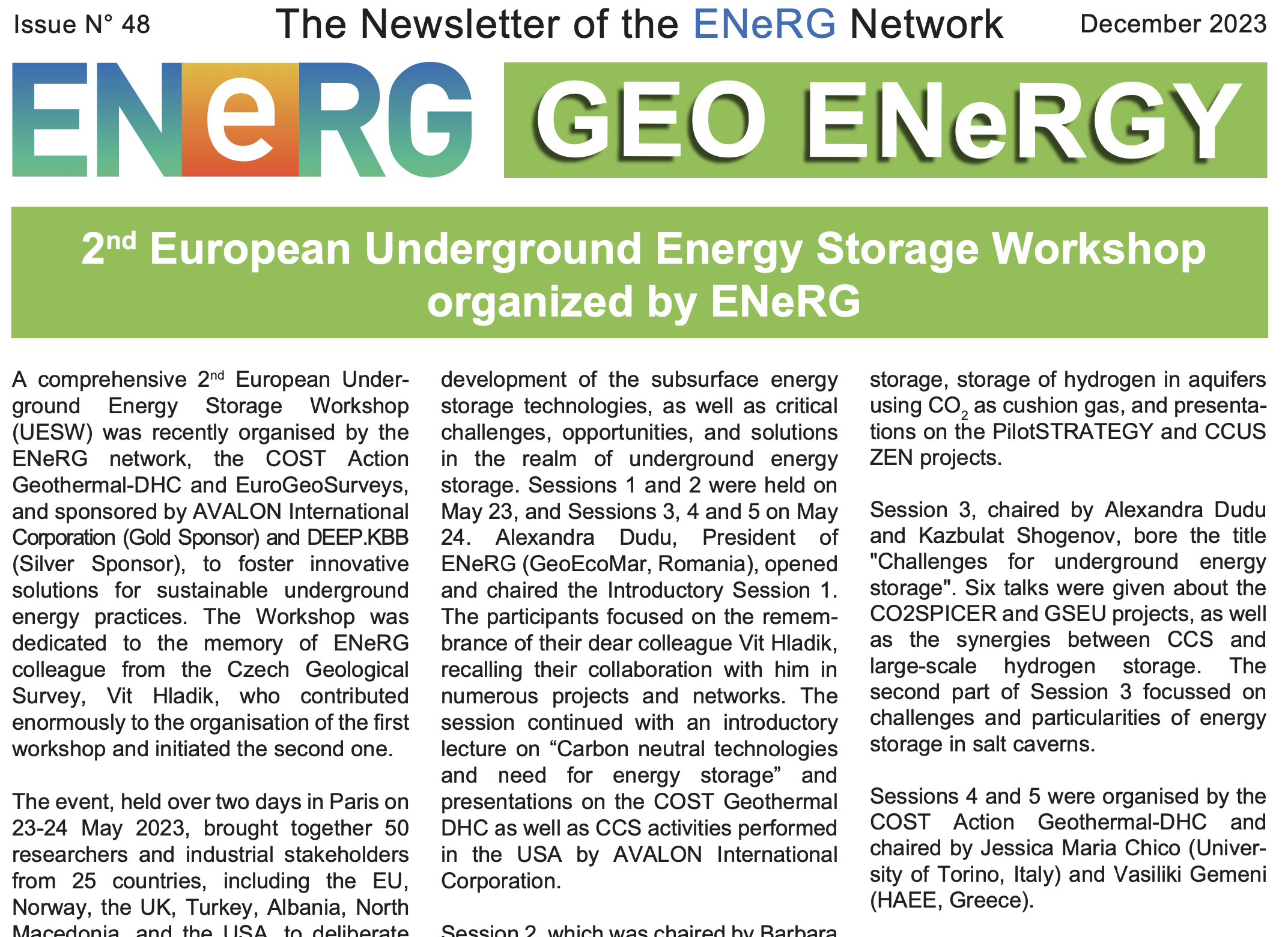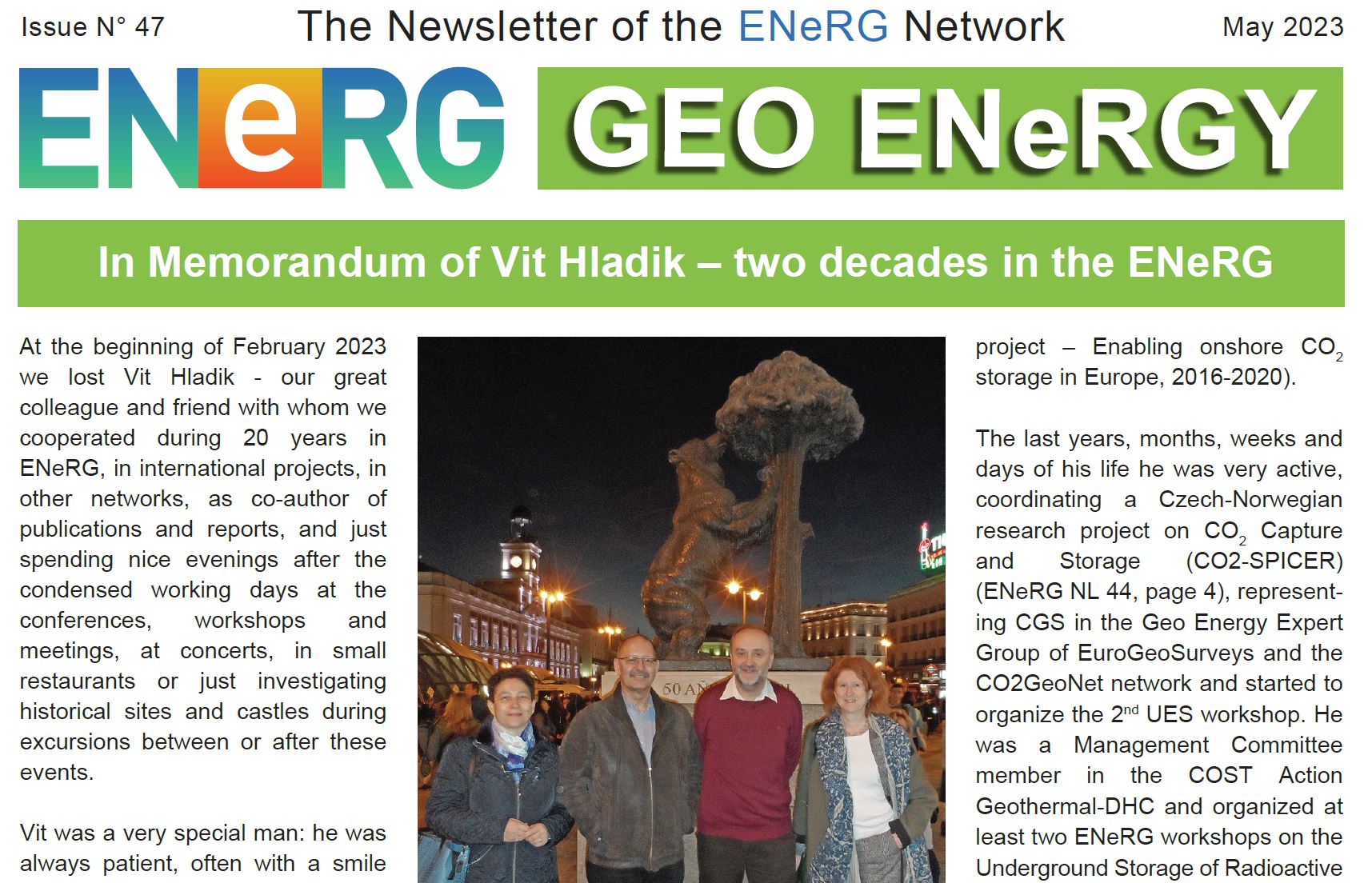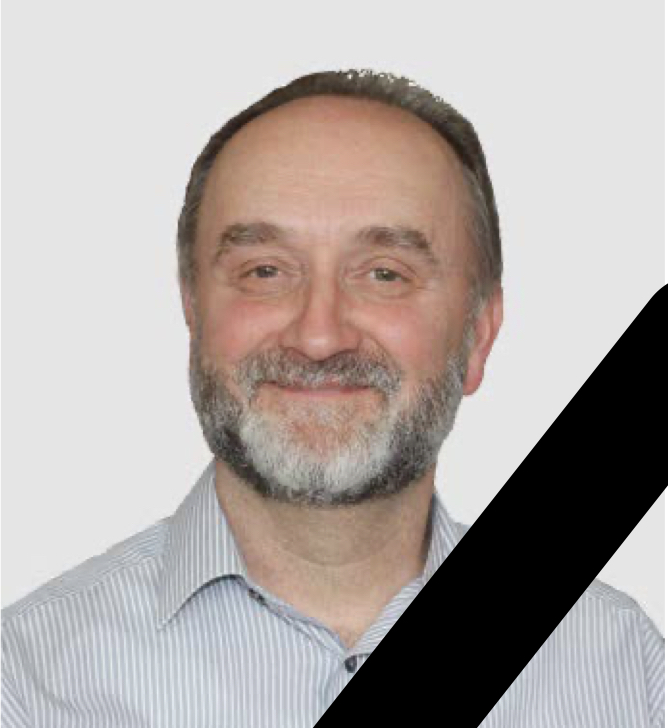The final meetings of the Cost action CA18219 Geothermal-DHC (Home page – Geothermal DHC (geothermal-dhc.eu) took place in Limassol/Cyprus on 11-12 March 2024 with the participation of several ENeRG members (Constantin Sava (GeoEcomar), Alla Shogenova (TalTech), Marek Hajto (AGH University of Science and Technology). More ENeRG members took part in CA18219 (PGI-NRI, University of Zagreb, Geological Survey of Czech Republic, etc), which started in 2019 and will be finished in April 2024. In May 2023 CA18219 Geothermal-DHC took an active part in the organisation of the Second Underground Energy Storage Workshop in Paris, which was organised in memory of Vit Hladik, one of the ENeRG presidents who left us in February 2023. Vit Hladik took an active part in the activities of the CA18219 Geothermal-DHC. He was a Management Committee member and country representative.
The first-page article is about the results of the 2nd European Underground Energy Storage Workshop organized by the ENeRG in cooperation with COST Action Geothermal DHC and EuroGeoSurveys in Paris on 23-24 May 2023.
The second page includes an article about the new Geothermal Direct Use in Ukraine project started in July 2023 in which ENeRG member NGO “Geothermal Ukraine” is a partner.
The third page is about the results of the International Master Course on CO2 Geological Storage organised by the University of Zagreb and the Sapienza University of Rome, which are both members of ENeRG.
On the last page, the article about the annual Baltic Carbon Forum 2023 organised by BASRECCS network on the 12-13 October 2023 in Riga and attended by ENeRG members from TalTech, GEUS, SHOGenergy, and PGI-NRI.
The GEO ENeRGY newsletters are distributed now only in digital form for the ENeRG members and for all the visitors of the ENeRG website, where it is available for download.
For more information please read the attached newsletter.
The International master on CO2 Geological Storage – Final Defence
Thursday, 7th December – 10:00 a.m. Rome time
Google Meet: https://meet.google.com/fdi-ycvs-mfq
The Final Defence ceremony of the International Master on CO2 Geological Storage will be held at 10:00 on the 7th of December (Rome time) in the Aula Lucchesi of the Earth Sciences Department of Sapienza University. The event will take place online and in person.
All researchers from the ENeRG network are invited to participate!
The International Master on CO2 Geological Storage is an Initiative of the ENOS project, organized by the University of Zagreb and Sapienza University of Rome, with the participation of GEUS (Denmark), Heriot Watt University (Scotland), Sotacarbo (Italy), TalTech University (Estonia), NORCE (Norway), ETH Zurich (Switzerland), and Evora University (Portugal).
The five candidates will present their work with a presentation of 15 minutes, followed by 5 minutes for questions. At the end of the presentations the Commission, composed of Professors Bruno Saftic, Sabina Bigi and Maurizio Battaglia, will award the diplomas to the students.
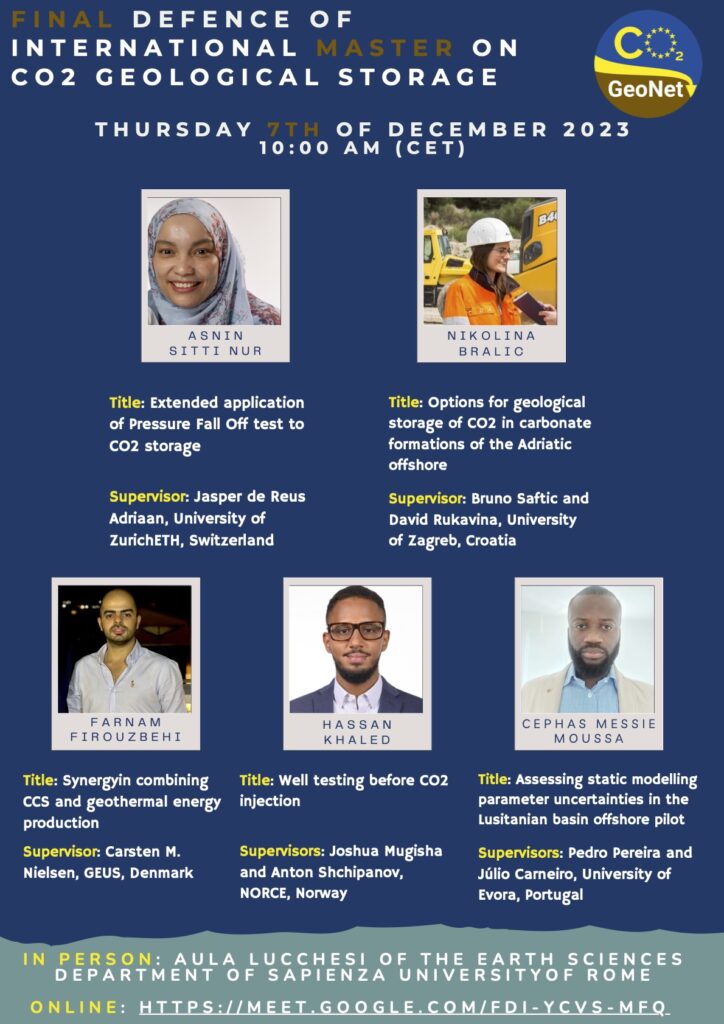
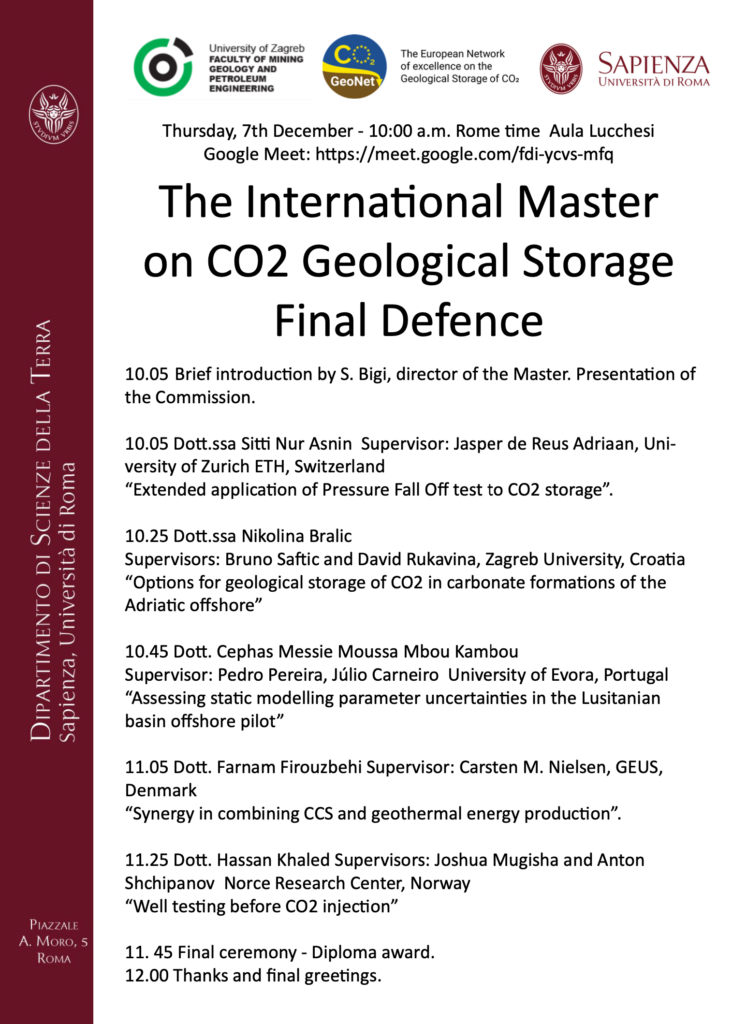
Dan Stepansky, a Business Development Manager responsible for new Geo-Energy projects at Czech Geological Survey, is a new representative of his institution in the ENeRG network since May 2023.
The new issue of GEO ENeRGY (No. 47), the regular newsletter of the ENeRG, has been published
The first-page article is in the Memorandum of Vit Hladik, our dear colleague and friend, ENeRG president in 2018-2019, who left us forever on 3rd February 2023.
On the second page, the new Horizon Europe project HERCCULES – Heroes in Southern Europe to decarbonize industry with CCUS, started on 1 January 2023, is introduced in short.
The second article on the second page is the introduction of the new ENeRG member – Geothermal Ukraine.
The third page about the results of the Horizon 2020 project HyStories is written by the project coordinator Arnaud Reveillere.
On the last page the announcement of the 2nd European Underground Energy Workshop in Paris, 23-24 May, organized by the ENeRG in cooperation with COST Action Geothermal DHC could be found.
The GEO ENeRGY newsletter was printed and distributed at the 2nd European Underground Energy Workshop in Paris on 23-24 May in Paris.
The GEO ENeRGY newsletters are distributed now only in digital form for the ENeRG members and for all the visitors of the ENeRG website, where it is available for download.
For more information please read the attached newsletter.
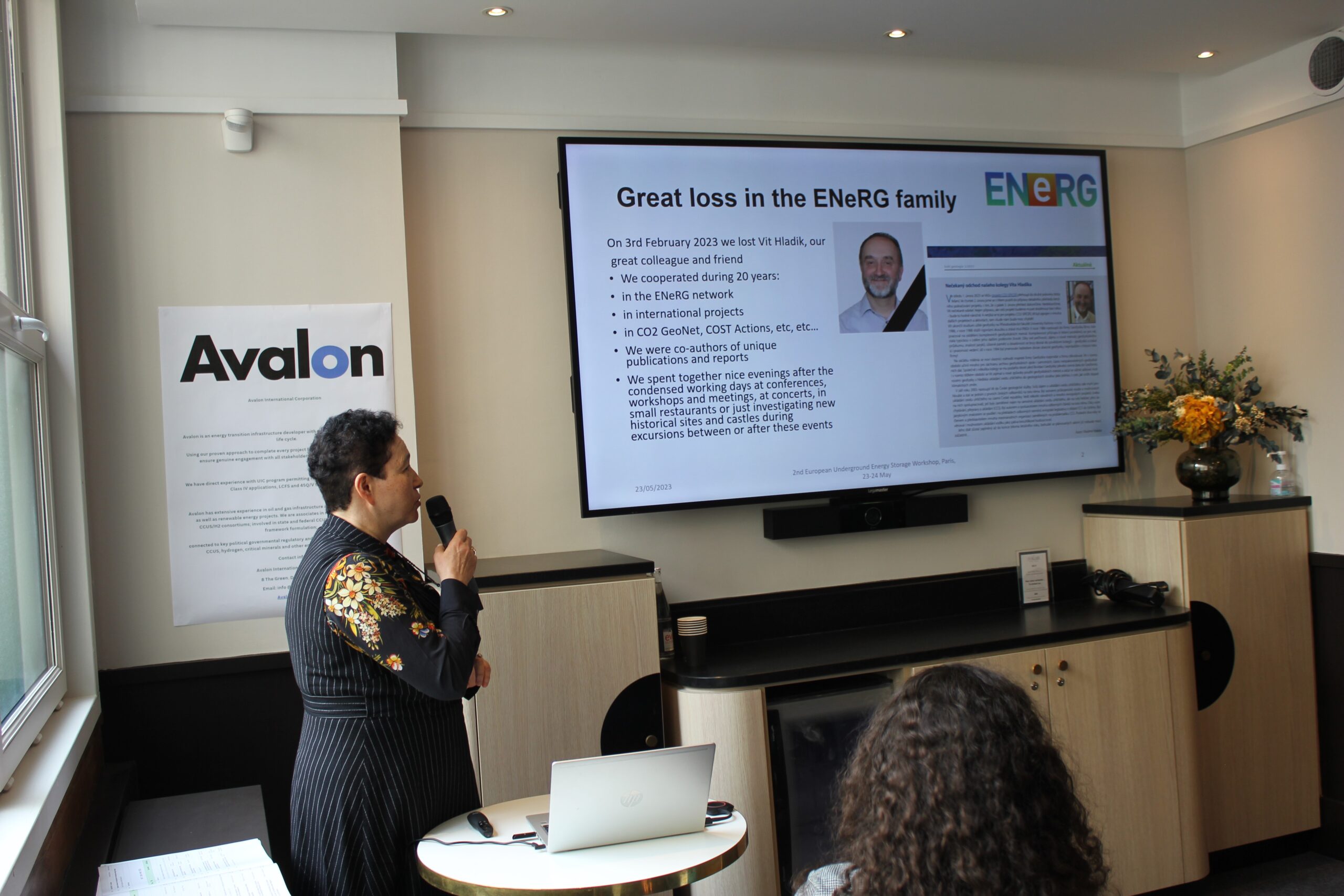
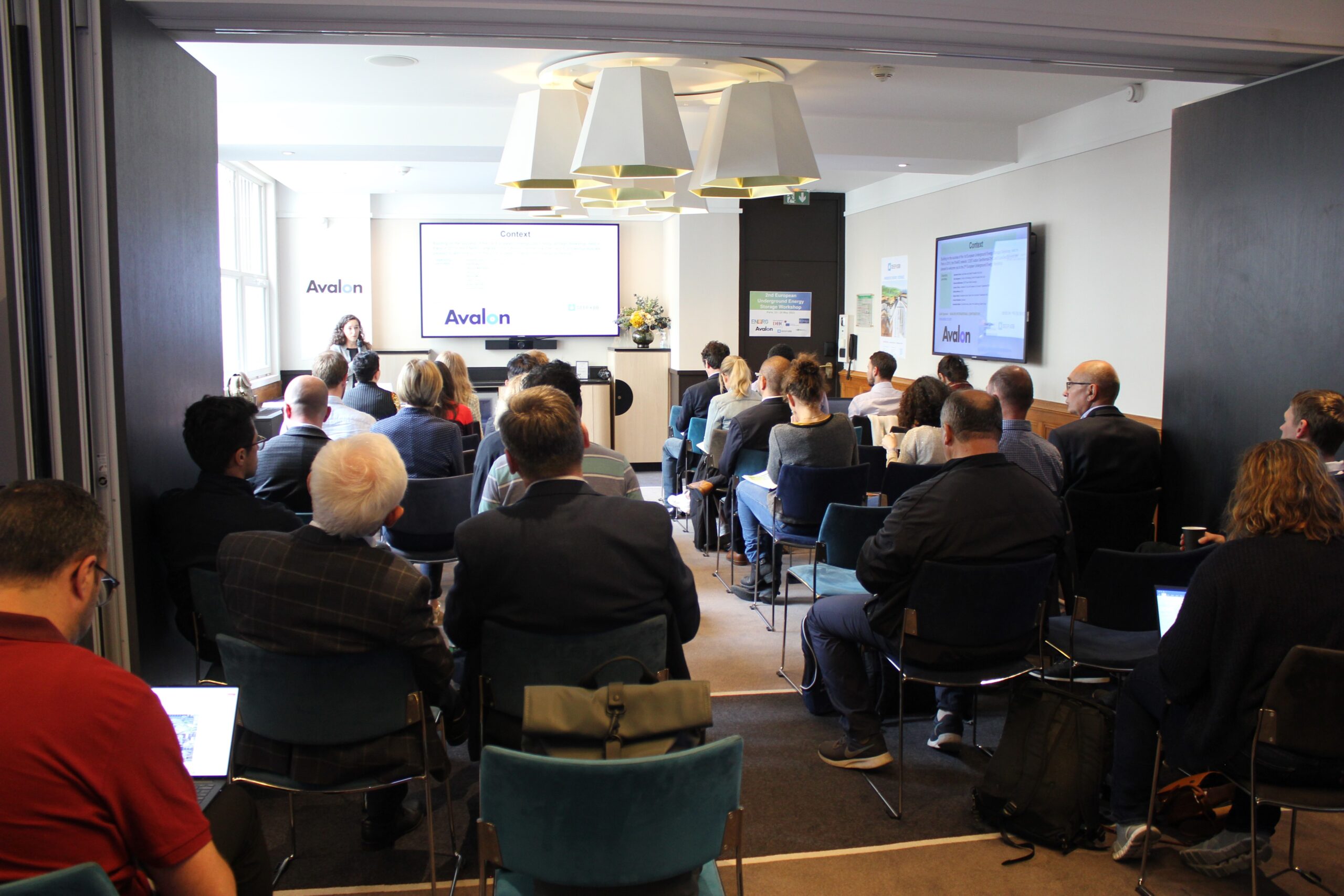
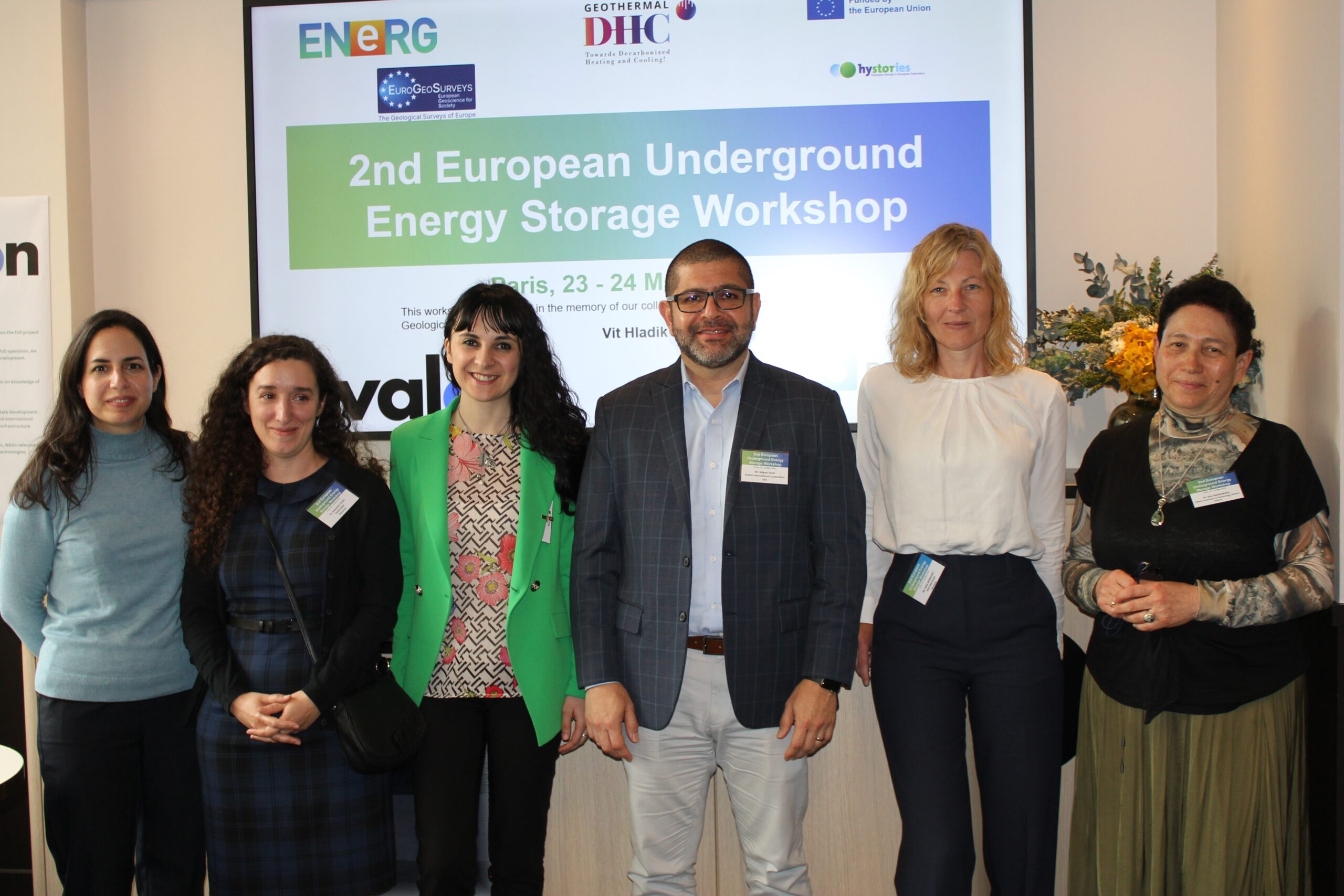
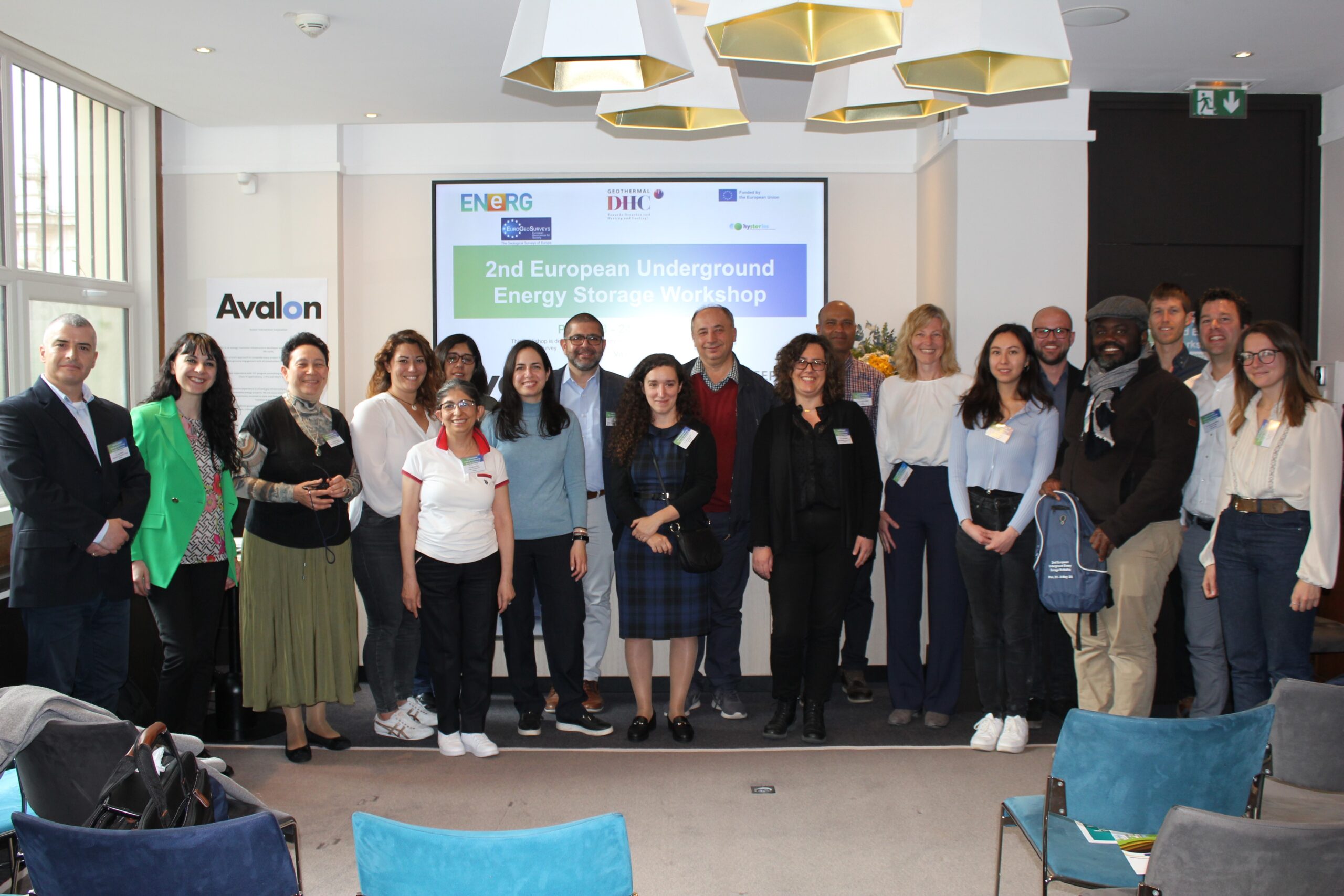
[23-25 May 2023]
The 2nd European Underground Energy Storage Workshop which took place in Paris on 23-25 May 2023, was organized by the ENeRG network, COST Action Geothermal-DHC and EuroGeoSurveys and sponsored by AVALON International Corporation (Gold Sponsor) and DEEP.KBB (Silver Sponsor).
Fifty researchers and industry stakeholders from 25 countries, including the EU, Norway, the UK, Turkey, Albania, North Macedonia and the USA, took part in the workshop.
Alexandra Dudu (GeoEcoMar, Romania), the ENeRG President, opened and chaired the Introductory Session 1 on 23rd May. She first introduced Dan Stepansky, the new representative of the Czech Geological Survey in ENeRG, who spoke in memoriam of his dear colleague and schoolmate, Vit. Alla Shogenova (TalTech), the ENeRG Ex-President (2022-2023), continued the discourse in memoriam of Vit, rememorating her cooperation with him during two decades, in various projects and networks.
After Alla’s presentation, Kazbulat Shogenov (SHOGenergy) made an introductory lecture about “Carbon neutral technologies and the need for energy storage”. The session continued with a presentation on COST Geothermal DHC by Jessica Chicco and the presentation of CCS activities performed in the USA by the Gold Sponsor (Avalon International Corporation) represented by Miguel Silva.
The Session 2. Advances in the deployment of underground energy storage on 23rd May were chaired by Barbara Merson (OGS) with five presentations from industry and research. The session was opened with a presentation by Heike Bernhardt (DEEP.KBB, Germany – Silver Sponsor) on hydrogen storage in salt caverns – status and future potential. The second presentation was made by Matthias Torquet (Geostock, France) who explained the opportunities and particularities of underground storage of ammonia. Fernanda Veloso (BRGM, France) made two presentations, one on the storage of hydrogen in acquirers using CO2 as cushion gas and one on the PilotSTRATEGY project. CCUS ZEN project, in which ENeRG is a networking partner, was presented by Catherine Ringstad (SINTEF, Norway)
The third session, Challenges for underground energy storage, was held on 24th May and was chaired by Alexandra Dudu and Kazbulat Shogenov. The session included six presentations and started with the presentation of Roman Berenblyum (NORCE, Norway) on the CO2SPICER project, in which Vit Hladik was the coordinator from the Czech Geological Survey. Francesco Pizzocolo (EuroGeoSurveys) presented after that GSEU project, followed by Gang Wang (Heriot-Watt University, UK) with synergies between CCS and large-scale hydrogen storage. The second part of session 3 focussed on the challenges and particularities of energy storage in salt caverns with three presentations on this topic made by Murad Abuaisha (Paris School of Mines, France), Benoit Brouard (Brouard Consulting SAS, France) and Laura Blanco Martin (Paris School of Mines, France).
Sessions 4 and 5 on the 24th of May were organized by COST Action Geothermal-DHC and chaired by Jessica Maria Chico (University of Torino, Italy) and Vasiliki Gemeni (HAEE, Greece).
Additionally, 6 posters were presented and discussed during breaks.
All the workshop was carefully managed by the ENeRG secretary Eleonora Manoukian. During the workshop pictures were taken by Kazbulat Shogenov, Eleonora Manoukian and Jubier Alonso Jimenez Camargo (Paris School of Mines), who also helped us with the organization at the site.
A number of the UESW participants also took part in the HyStories Conference on 25-26 May in Paris https://hystories.eu/final-conference.
Most of the presentations made at the workshop will be published soon on our website www.energnet.eu.
Yuliia Demchuk is a new GEO ENeRGY Newsletter Editor. She succeeded Alexandra Dudu in this position.
Yuliia Demchuk is a is a Board member of the NGO Geothermal Ukraine.
Please read more about Yuliia in her attached CV.
New ENeRG president 2023-2024
Alexandra Dudu is the new ENeRG President from the 1st of April 2023.
At the online Steering Committee meeting on 2nd March 2023 representatives of the ENeRG members elected Dr Alexandra Dudu as a new ENeRG President for 2023-2024.
Dr. Alexandra Dudu has been the ENeRG newsletter editor from 2018-2022.
Dr. Alexandra Dudu is the Head of the CO2 Geological Storage Department in GeoEcoMar Romania.
She succeeded Dr. Alla Shogenova from TalTech, Estonia who has been the ENeRG President from 2022-2023.
Please read more about Alexandra in her attached CV
Paris, 23-24 May 2023
This workshop is dedicated in memory of our colleague from the Czech
Geological Survey Vit Hladik who contributed enormously to the organization of the first workshop and initiated the present event

FLYER (pdf):
We are in a very sad position to announce the great loss of our former President and great friend and colleague, Dr. Vit Hladik.
Vit was a member of the ENeRG Steering Committee (2002-2023), in charge of the GEO ENeRGY newsletter (2004-2011), editor of the ENeRG website (2012-2017) and ENeRG President during the years 2018-2019.
He was a geo-energy research coordinator at Czech Geological Survey. His professional focus was research and project management in the field of CO2 geological storage, subsurface energy storage and other geo-energy technologies, including abundant experience with participation in international projects.
He was the project coordinator of FP6 CO2NET EAST, TOGEOS and REPP-CO2. He was also a Management Board member of the European research projects CGS Europe (FP7) and ENOS (H2020). In 2018-2022 he was project manager of GeoConnect³d and other ongoing international projects (H2020 HyStories, CO2-SPICER) and Managing Committee Member of COST Action Geothermal-DHC.
All ENeRG family is deeply mourning the unexpected loss of Vit Hladik and all would like to express their deepest condolences to his family, friends and co-workers.
Vit, you will be missed! Rest in Peace!
